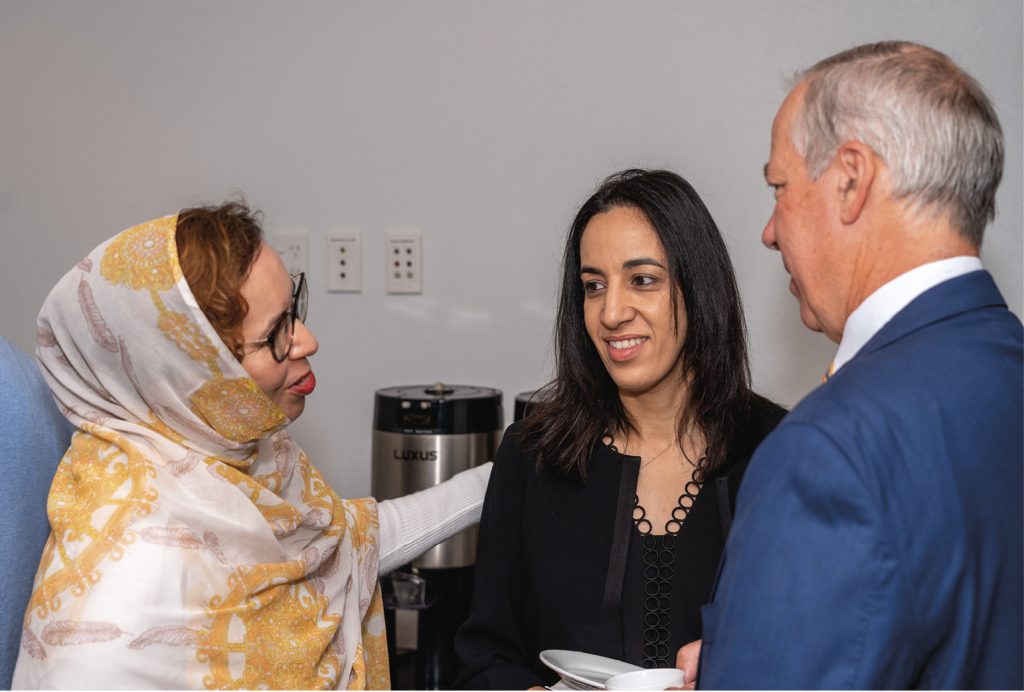Ballance Agri-Nutrients recently hosted a delegation of officials from Morocco’s OCP. The visit was one of several regular visits to New Zealand aimed at countering the campaign by representatives of Polisario, the organisation that claims to reflect the views of those Saharawi people largely living in refugee camps in Algeria.
Representatives of OCP – the world’s biggest phosphate mining company – spoke to Bay of Plenty Business News. The Boucra mine OCP controls is in the disputed Western Sahara region, which is regarded by the UN as a non self-governing territory under the legal administrative authority of Spain, but under de-facto Moroccan civil and military occupation.

The OCP representatives emphasized that the Boucra mine was a key source of social development for approximately 500,000 Sahawaris living in the disputed region, and the 2100 directly employed by the mine.
The mine supplies approximately 70 percent of the phosphate imported by New Zealand. But according to the OCP officials, the Western Saharan phosphate represents only two percent of Morocco’s total phosphate reserves, most of which are in the north in undisputed territory.
Small portion of exports to NZ
Last year Boucra sent approximately 22 percent of its output to New Zealand, the balance going to other countries worldwide.
Between them Ballance Agri-Nutrients and its main competitor, fellow farmers cooperative Ravensdown, import about $30 million worth of phosphate a year from the disputed territory.
Hajbouha Zoubeir, president, Phosboucra Foundation, OCP, said the total Boucra exports were approximately 400,000 tonnes, compared to the 11 million tonnes OCP produced.
“That is nothing to what we sell around the world,” she said.
Zoubeir, whose father originally worked in the mine, is a Sahawari. She said families in the region benefit from OCP’s massive investment in the community, including schools, hospitals and social programmes.
Major phosphate source
Morocco holds around 75 percent of known worldwide deposits, only around two percent of which are in the Western Sahara.
Boucra was originally owned by a Spanish company and the regional dispute has its origins four decades ago when Spain left its former colony. Polisaro regards Morocco as having invaded the region in 1976 when Spain withdrew as an occupying power, driving out many Sahawaris into refugee camps on the Algerian side of the border.
OCP took over the mine in 2002, when, according to Zoubeir, it was not producing any income.
According to Zoubeir, Boucra did not make a profit until 2008 and the parent company still did not receive any income from it, instead reinvesting it in the development projects in the region.
“People say the mine doesn’t benefit local people,” she said.
“What I can say is it does. They say it is the biggest mine in Morocco – but it is actually the smallest. They say the money goes to the north, whereas none goes to the north.”
The trade was completely in conformity of international rules, she said.
Ballance chief executive Mark Wynne told Bay of Plenty Business News that its superphosphate was made up of approximately 70 percent from Boucra, with the remainder from South Africa, Vietnam and some from Christmas Island. The Boucra phosphate is low in cadmium, and high in carbonate, making it particularly suitable for application to New Zealand’s soils, he said.
According to Ballance, without phosphate fertilisers, New Zealand rural production would fall at least 50 percent, which equates to a $10 billion per year hit to the economy.
“We’ve been visiting the region for 20 years now and seen huge development of infrastructure over that time,” he said.
“We have met many of the employees who have directly benefited from the social, health and educational programmes that OCP continues to deliver.”
But ultimately, it was something the UN needed to resolve, said Wynne.




